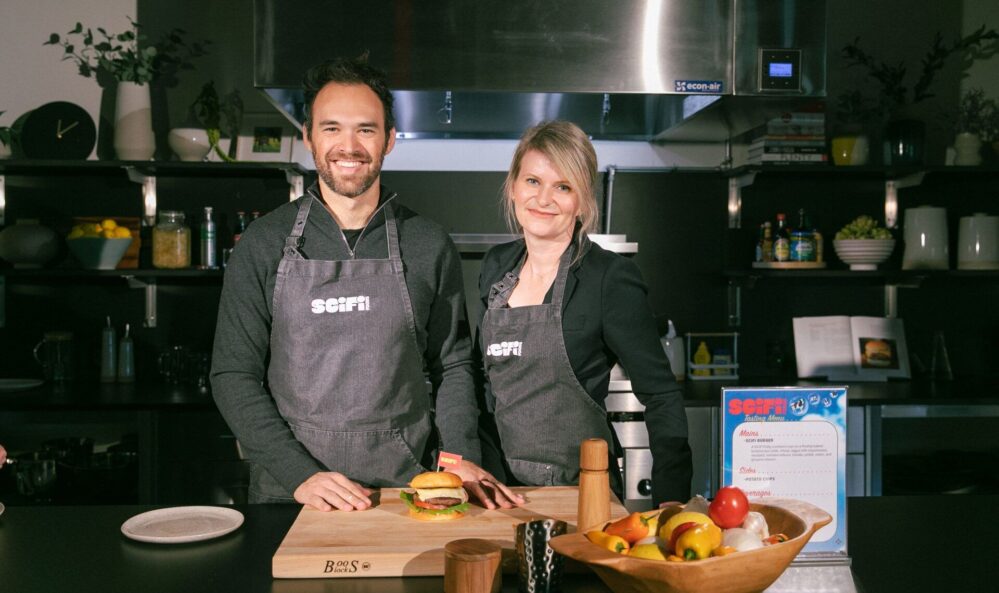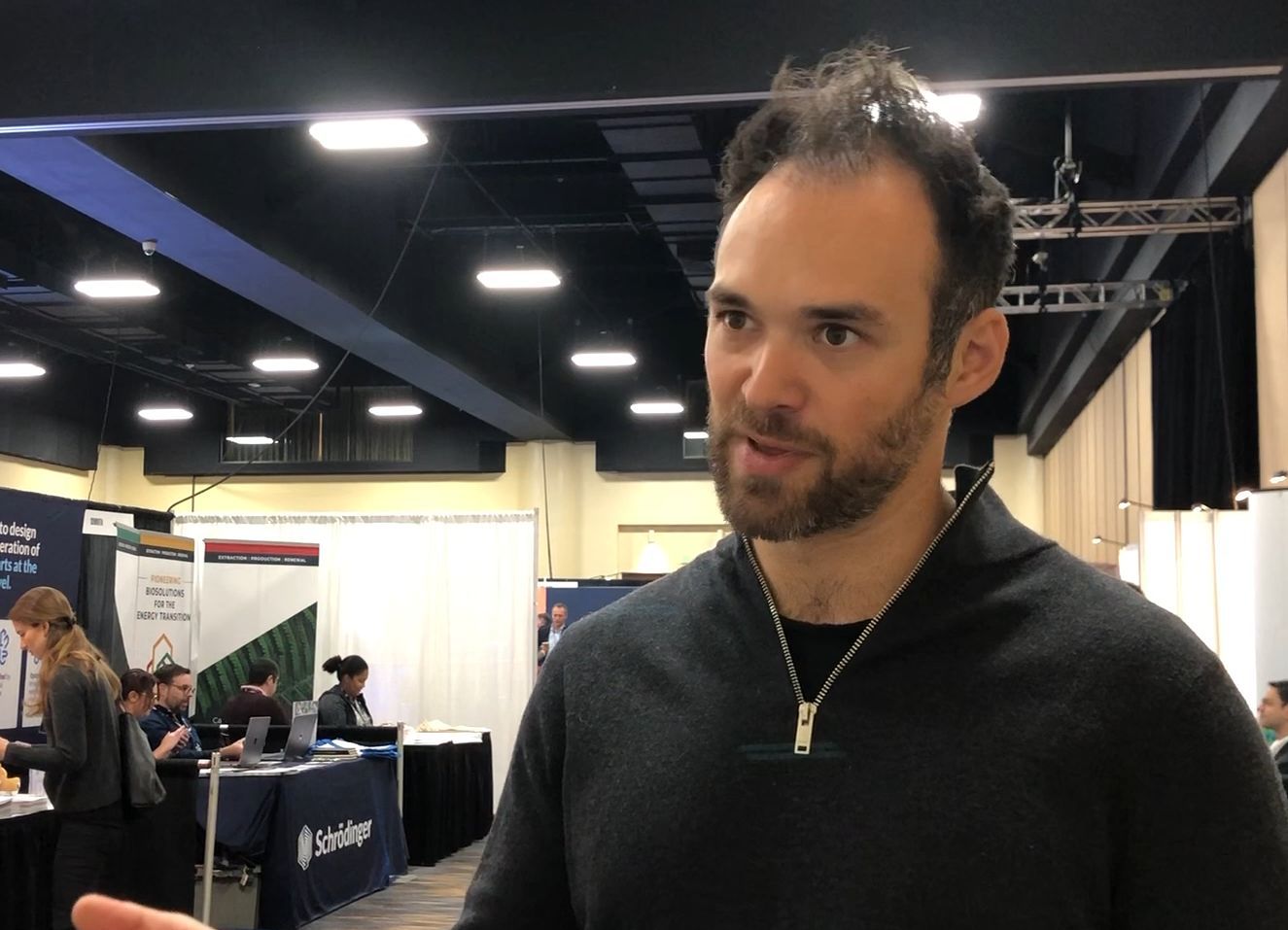Some commentators argue that cultivated meat faces intractable challenges at food scale, and that growing meat in bioreactors at scale is a food tech fantasy. So are they right? It all depends on your approach, says Joshua March, cofounder and CEO at San Leandro-based startup SciFi Foods.
If you’re asking whether it’s commercially viable (or even technically feasible) to crank out 100% cell-cultured filet mignon steaks at a massive scale, the answer right now is no, March told AFN at the SynBioBeta conference in Oakland, California last week.
If you’re proliferating cultivated cells to feature as an ingredient in plant-based burgers and sausages at inclusion rates of 10-30%, however, the unit economics start to look far more favorable, he argued.
‘It’s important to differentiate and separate what’s possible today and what’s going to be possible tomorrow’
“You can make a blended product commercially viable at an affordable price at relative scale using existing technology without needing crazy-scale bioreactors,” he told AFN from the sidelines of the conference. “I think you need genetic engineering and synthetic biology to get to that point, but still, it’s viable.
“We start to see a big flavor impact, even at a 5-10% inclusion rate, and the more you add, the cells mask a lot of the planty off notes and bring in a lot of beefy notes.”
But he added: “I do agree, however, that when you look at the technology we have today, it’s not viable to do 100% [cultivated meat at meaningful scale and make money]. I think there are people working on technologies that will make that possible over the next decade and that is the clear future.
“But I think it’s important to differentiate and separate what’s possible today and what’s going to be possible tomorrow.”

CRISPR gene editing
March, who believes he has “a pretty clear shot at being the first company to bring cultivated beef to the market in the US,” is growing bovine cell lines in single-cell suspension, without microcarriers [something to adhere to].
“We’re taking satellite cells from cow muscle and we’re using the power of synthetic biology [CRISPR gene editing techniques] to immortalize those cells and to get those cells grow in single cell suspension, and to make sure they have all the performance characteristics necessary so we can scale them,” said March.
The cells are “partially differentiated,” and should be “seen as an ingredient,” he said. “We’re not trying to create tissue.”
SciFi Foods, which is building a pilot plant in the Bay Area that will be ready this year, is “not expecting to have regulatory approval probably for at least another year after that,” said March.
“Our goal is to start with restaurants and foodservice before eventually getting into retail and mass market,” added March, who has raised about $40 million to date from investors including Andreesseen Horowitz, Valor Siren Ventures, BoxGroup, Entree Capital, and Prelude Ventures.
Is cultivated meat better for the environment?
But is cultivated meat better for the environment?
Asked about a recent (not yet peer-reviewed) UC Davis study claiming that greenhouse gas emissions from cultivated beef could be up to 25% higher than regular beef, March said: “That study makes some pretty big assumptions around [using] pharmaceutical grade amino acids [in the basal media], which the industry pretty strongly disagrees with, as we think we can just use food grade amino acids.”
However, even if cultivated meat requires more energy than regular meat production, as some studies have claimed, he said, this could be powered by renewables. It also uses significantly less water and land.
“The biggest issues with beef, from a climate perspective, are land use changes caused by deforestation and methane emissions, the most potent greenhouse gas.”
‘Electric cars had years and years of horrific coverage’
As for the shifting media narrative around cultivated meat, which initially inspired almost universally positive coverage, he said, “I think we always see these kinds of ebbs and flows with any new industry. Electric cars had years and years of horrific coverage about how they were never going to make it and how they’re all terrible. And look where we are now.”
He added: “Journalists get excited when there’s something new, and then when it doesn’t immediately work, it’s easy to start writing negative articles, so I think we’re just seeing a natural cycle. Ultimately, we have to build trust by being transparent and open and honest about where we’re at and what we’re doing, stay focused and work to build a great product.”

Embracing lab-grown meat: ‘It’s not dystopian sci-fi, it’s optimistic sci-fi that we used to dream about’
Asked about last year’s decision to rebrand the company from Artemys Foods to SciFi Foods, he said: “We know that when we launch, the meat lobby’s going to coming after us really hard for being Frankenmeat. A lot of the press still calls it ‘lab-grown’ meat. The science is very heavily featured and we don’t think you should hide that.
“You can try and pretend it’s all-natural and call yourself ‘Nothing to See Here Foods,’ but no one’s going to believe it, especially in the Gen Z social media world. It’s just going to come across as inauthentic, so I don’t think you can avoid the fact that it is kind of sc-ifi right? But at the same time, it’s really cool. We’re growing real meat without animals, and that’s exciting.
“It’s not dystopian sc-ifi, it’s optimistic sci-fi that we used to dream about, and so we think that’s an exciting vision to get around and allows us to be very authentic and bold and really differentiate ourselves from plant-based meat, which honestly I think has a bit of a branding issue.”





